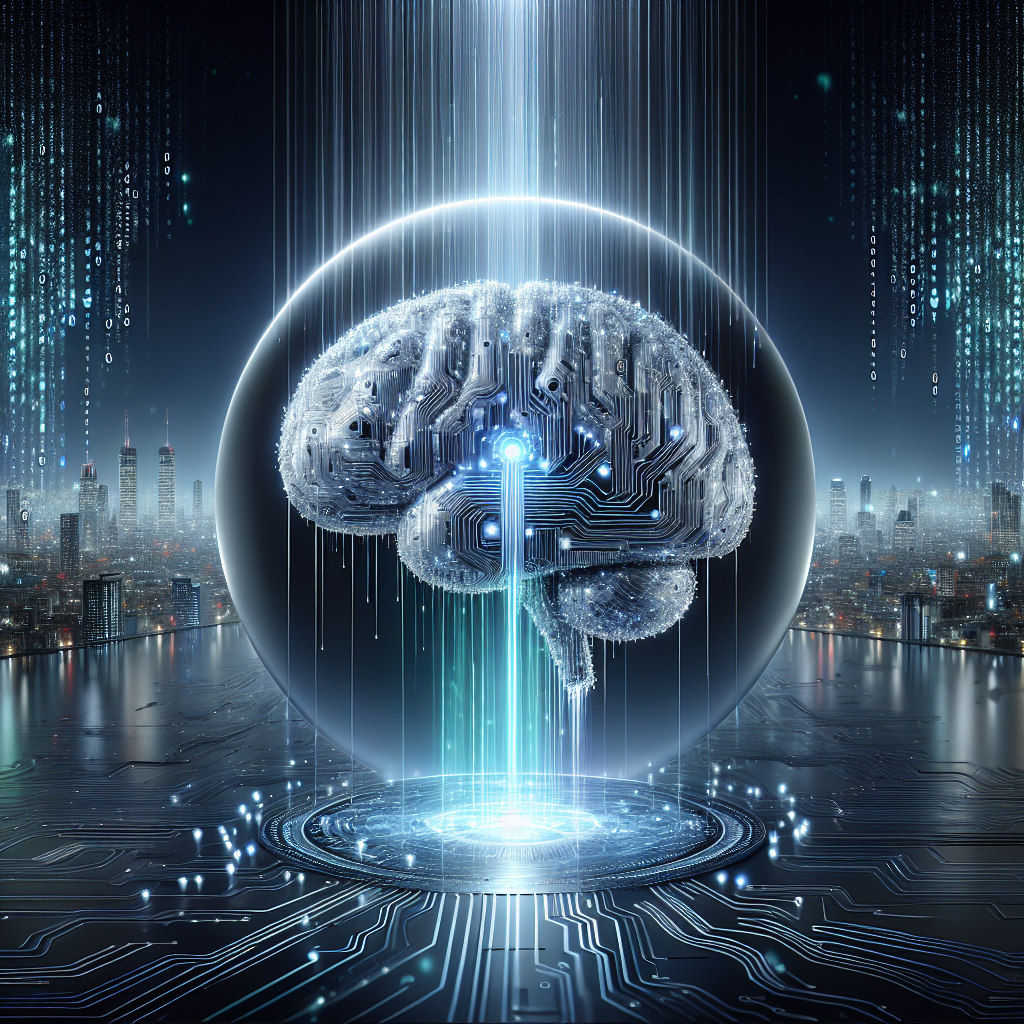With the rapid advancement of technology, the role of artificial intelligence (AI) in cybersecurity has become increasingly important. AI algorithms are revolutionizing the way we approach cybersecurity, helping organizations stay ahead of cyber threats and protect their sensitive data. Harnessing the power of AI has enabled businesses to detect and respond to cyber threats in real time, making it an essential tool in the fight against cybercrime.
AI algorithms are designed to analyze and learn from vast amounts of data, allowing them to detect patterns and anomalies that may indicate a potential security threat. These algorithms can sift through massive amounts of data much faster and more accurately than human analysts, making it possible to identify potential threats before they can cause any harm.
One of the most significant advantages of AI in cybersecurity is its ability to adapt and learn from new threats. Traditional security measures rely on preprogrammed rules and signatures to detect threats, making them vulnerable to new and sophisticated cyber attacks. AI algorithms, on the other hand, can continuously learn and update their detection capabilities based on new threats, making them much more effective at defending against evolving cyber threats.
AI-powered cybersecurity solutions also have the advantage of being able to automate many routine security tasks, freeing up security analysts to focus on more strategic tasks. By automating tasks such as threat detection, monitoring, and remediation, AI algorithms can help organizations respond to security incidents much faster and more effectively.
In addition to enhancing threat detection and response capabilities, AI algorithms can also help organizations improve their overall cybersecurity posture. By analyzing vast amounts of data, AI algorithms can identify vulnerabilities and weaknesses in an organization’s security infrastructure, making it easier to prioritize security investments and improve overall security resilience.
One of the key benefits of using AI in cybersecurity is its ability to handle the sheer volume of security data that organizations generate on a daily basis. Traditional security solutions struggle to keep up with the vast amounts of data that need to be analyzed, often leading to missed threats and false positives. AI algorithms can process and analyze data at scale, helping organizations stay ahead of cyber threats and reduce the risk of data breaches.
While AI algorithms have proven to be highly effective in enhancing cybersecurity, there are some challenges that organizations need to be aware of. One of the main challenges is the potential for bias in AI algorithms, which can lead to incorrect or biased decision-making. It is essential for organizations to ensure that their AI algorithms are trained on unbiased data and are regularly monitored and tested for bias.
Another challenge is the potential for AI algorithms to be exploited by cybercriminals. As AI algorithms become more powerful and capable, there is a risk that cybercriminals could use them to launch more sophisticated and targeted attacks. Organizations need to remain vigilant and implement robust security measures to protect their AI-powered cybersecurity solutions from exploitation.
Despite these challenges, the benefits of harnessing the power of AI in cybersecurity far outweigh the risks. By integrating AI algorithms into their security infrastructure, organizations can enhance their threat detection and response capabilities, improve their overall cybersecurity posture, and stay ahead of evolving cyber threats.
In conclusion, AI algorithms are revolutionizing the field of cybersecurity, enabling organizations to detect and respond to cyber threats in real time, automate routine security tasks, and improve their overall security posture. By harnessing the power of AI, organizations can stay ahead of cyber threats and protect their sensitive data from malicious actors.
FAQs:
Q: How does AI help in improving cybersecurity?
A: AI algorithms can analyze vast amounts of data, detect patterns and anomalies, and adapt and learn from new threats, making them much more effective at defending against evolving cyber threats.
Q: What are some of the challenges of using AI in cybersecurity?
A: Some of the challenges include the potential for bias in AI algorithms, the risk of exploitation by cybercriminals, and the need for regular monitoring and testing to ensure the effectiveness and security of AI-powered cybersecurity solutions.
Q: How can organizations ensure the security of their AI-powered cybersecurity solutions?
A: Organizations can ensure the security of their AI-powered cybersecurity solutions by training their AI algorithms on unbiased data, implementing robust security measures to protect against exploitation, and regularly monitoring and testing their AI algorithms for bias and vulnerabilities.
